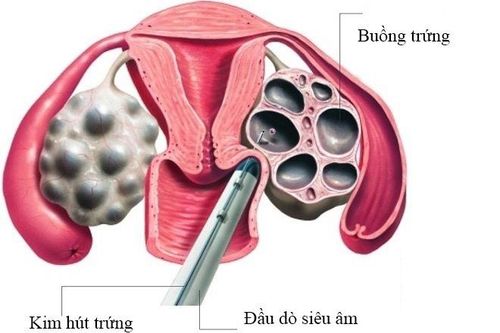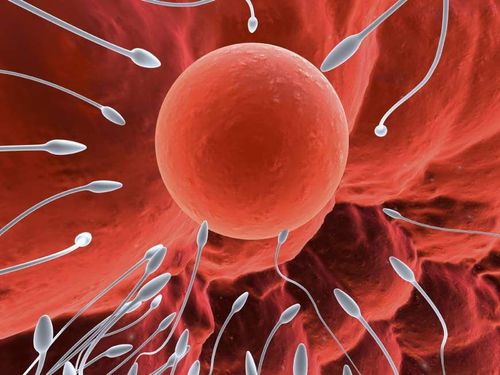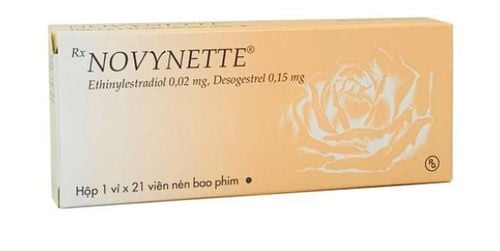For patients undergoing infertility treatment, especially after procedures like egg retrieval or embryo transfer, a common question among couples is about sexual activity post-procedure. So, how long after egg retrieval can one engage in sexual activity?
1. What is Egg Retrieval?
Egg retrieval is a technique used in the process of in vitro fertilization (IVF). Essentially, before egg retrieval, patients are given hormones to help the eggs develop. Once they reach the appropriate size, doctors use instruments to retrieve the eggs from the ovaries, which are then fertilized with sperm. The fertilized embryos are then transferred back into the woman's uterus.
2. How Does Egg Retrieval Work?
During ovulation, your ovaries release a mature egg into the fallopian tube, where it waits to be fertilized by sperm. However, with egg retrieval, doctors aim to collect as many mature eggs as possible in one ovulation cycle.
A woman will need to be examined to determine the number of eggs she has. This usually occurs on the second or third day of the menstrual cycle. Doctors will analyze hormone levels in the blood and perform an ultrasound of the ovaries to assess the number of eggs. This allows doctors to create a medication regimen tailored to the woman to try to develop as many eggs as possible simultaneously.
Regardless of the reason for egg retrieval, the process follows the same basic timeline: The woman prepares by taking fertility medications for about two weeks, then goes to the hospital for the egg retrieval procedure, and finally spends a day recovering.
The woman takes injectable fertility medications to produce enough hormones for multiple eggs to develop. Patients usually self-administer these medications for one and a half to two weeks. Doctors monitor the woman's response to the medication with ultrasounds and blood tests. When enough ovarian follicles (fluid-filled sacs) have developed into mature eggs, the woman will receive an injection of a medication to release the eggs 36 hours before retrieval, encouraging the body to release the eggs.
About one-third of women using stimulation medications may experience hormonal fluctuations that can cause side effects such as headaches, mood changes, insomnia, hot flashes or chills, breast tenderness, bloating, or mild water retention.

3. Can You Have Sexual Intercourse After Egg Retrieval?
Egg retrieval is a procedure performed under anesthesia. After the procedure, patients may be affected by the anesthesia for up to 24 hours, so they need to rest and avoid strenuous activities.
Sexual activity is discouraged following egg retrieval and embryo transfer to ensure optimal recovery and outcomes. It is advised to rest the pelvic area for 5 to 7 days after egg retrieval and embryo transfer.
Prior to egg retrieval, patients receive hormonal treatments to stimulate egg development. For some patients, there is a risk of developing ovarian hyperstimulation syndrome (OHSS) if they become pregnant during this period. Although rare, hormone injections can lead to OHSS, causing the ovaries to swell, resulting in abdominal pain, bloating, nausea, weight gain, and other discomforting symptoms. About 1 to 2 percent of women with OHSS develop serious complications such as blood clots, kidney failure, ruptured ovarian cysts, and death. Monitor for these symptoms both during and after the administration of injectable medications. Therefore, for some high-risk patients, the eggs retrieved and fertilized will be frozen and transferred in the next cycle to minimize this risk.
Additionally, when the ovaries are stimulated, they will enlarge, with many follicles developing. This increases the risk of follicular rupture or ovarian torsion, particularly if the patient participates in strenuous activities, such as sexual intercourse. Although this risk is low, patients should still limit such activities.
4. When Can You Have Safe Sexual Intercourse After Embryo Transfer?
Patients should rest the pelvic area for 5 to 7 days after egg retrieval and embryo transfer. This helps the body recover and ensures that pregnancy tests can be performed reliably. Allowing the pelvic area to rest provides the embryo with optimal conditions to implant in the uterine wall and progress into fetal development.
After this period, when engaging in sexual intercourse, patients should use safe sex methods such as condoms to ensure that pregnancy tests after embryo transfer are accurate. If there are any unusual symptoms or concerns, you should consult an infertility specialist for more specific advice.
Essentially, egg retrieval is a crucial technique in the in vitro fertilization (IVF) process, so women should be cautious and choose high-quality medical facilities. Additionally, before and after the egg retrieval process, maintaining a healthy and nutritious diet is essential to ensure good health.

The IVF Support Center at Vinmec Times City International General Hospital currently applies IVF techniques in infertility treatment. The hospital gathers highly specialized doctors who are experts in obstetrics and gynecology both domestically and internationally, trained at leading centers worldwide, and directly involved in the process.
To arrange an appointment, please call HOTLINE or make your reservation directly HERE. You may also download the MyVinmec app to schedule appointments faster and manage your reservations more conveniently.













